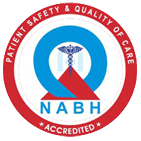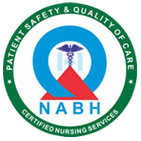How is ADHD in adults diagnosed?
It is not easy for a doctor to diagnose adult attention deficit/hyperactivity disorder (ADHD). Sometimes, an adult will recognize the symptoms of ADHD in himself or herself when a son or daughter is diagnosed. Other times, adults will seek professional help for themselves and find that their depression or anxiety is related to ADHD. In order to be diagnosed with ADHD, an adult must have childhood-onset and persistent, current symptoms. For an accurate diagnosis, the following are recommended:
· A history of the adult’s behavior as a child
· An interview with the adult’s life partner, parent, close friend, or other close associate
· A physical examination
· Psychological tests
What are symptoms related to adult ADHD?
ADHD symptoms continue as problems into adulthood for more than 60 percent of children with ADHD. The following behaviors and problems might stem directly from ADHD, or might be the result of related adjustment difficulties:
· Chronic lateness and forgetfulness
· Anxiety
· Lack of organizational skills
· Low self-esteem
· Employment problems
· Difficulty controlling anger
· Impulsiveness
If these difficulties are not managed appropriately, they can cause emotional, social, occupational, and academic problems in adults.
What are types of behavioral treatments for adult ADHD?
Adult ADHD might be treated with one or more of the following:
· Individual cognitive and behavioral therapy to enhance self-esteem
· Relaxation training and stress management to reduce anxiety and stress
· Behavioral "coaching" to teach the person strategies for organizing home and work activities
· Job coaching or mentoring to support better working relationships and improve on-the-job performance
· Family education and therapy
What strategies can help an adult with ADHD succeed in the workplace?
Some adults with ADHD have benefited from:
· Time-management training;
· Relaxation and stress management training;
· Occupational therapy to teach strategies for organizing home and work activities; and,
· Job coaching or mentoring to support better working relationships and improve on-the-job performance.
What strategies can parents with ADHD use to resolve conflicts with ADHD children?
·
Be aware. Accept the fact that you are angry, frustrated, and fearful. So is your teen—although his bravado may hide it. You can’t help your child through tough times if you can’t control your emotions. If you can’t, seek the help of a doctor or therapist.
·
Be honest and positive. Admit to your child that having ADHD is not easy, that it takes a lot of effort to stay on track. Tell him/her about some of the challenges you have faced, and the ways you have succeeded. Use humor to deflect anxiety. Always reinforce your child’s strengths.
·
Practice healthy confrontation. If you are about to lose your temper, use these techniques:
o
Avoid accusation —focus on solutions to the problem and teach your teen to find alternatives that work.
o
Focus on the behavior —make it clear that your son is not the sum of his behaviors, and that he, within reason, can control them.
o If you or your child starts to shout, break the pattern by speaking softly.
·
Stick to your word. It isn’t easy for people with ADHD to remain disciplined enough to mete out consequences. Make this a priority. If you told your son he must be home by 10 or he will lose his car privileges, and he comes home at 11, don’t get angry. Take away his car privileges. This may be inconvenient—you may have to drive him to his tutoring sessions—but do it anyway. If you don’t, your son will miss out on learning to equate his actions with consequences and on seeing that a person with ADHD can demonstrate responsible behavior.
·
Avoid the guilt trap. You may have challenges like those of your son, but he is his own person. ADD is an explanation of behaviors, not an excuse for them. Your own failures don’t mean you shouldn’t have reasonable expectations for him.
·
Humor them a little. Parents who have a sense of humor during tense, stressful situations may make their teen feel more accepted, less anxious, and better able to regulate his emotions, say researchers.
·
Accept your imperfections. It is difficult enough to deal with your own ADHD, let alone your teen’s. Don’t let the perception that you’ve failed as a parent, because of your son’s challenges, affect your interactions with him. You are a role model for your son, imperfections and all.




